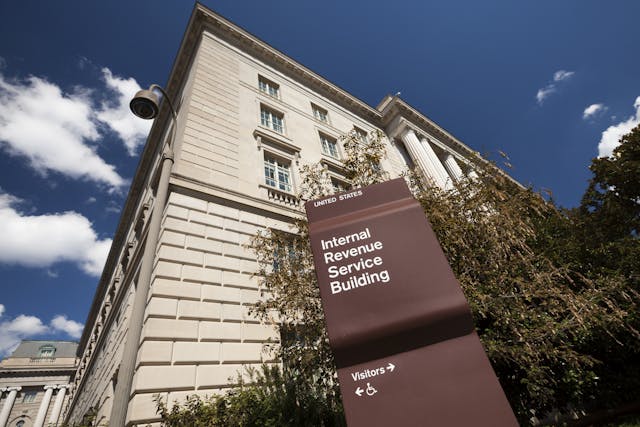
Tax Planning
Tax Minimization Strategies for Physicians: a Side-by-Side Comparison
In today’s world, physicians are often inundated with financial advice, tips, and anecdotes. While certain practices such as taking on side income (e.g., locum tenens) or maximizing retirement contributions have become standard knowledge, it’s not often that physicians can readily see how all these various actions concretely impact their bottom line.

Tax Planning
How Physicians Can Leverage Deductions in 1099 Work
Many physicians engage in work where they are paid as a contractor rather than as an employee. Their income is reported to them on a Form 1099 and this type of work is often referred to as “1099” or “1099 contractor work.”

Investment Management
The Physician's Practical Guide to Real Estate Investing
Real estate is a popular investment vehicle for physicians because it's a way to generate passive income, diversify your investments, and help protect against inflation. You've likely heard about it from colleagues or read about it on medical blogs. Investing money in real estate can be a smart wealth-building avenue for physicians, provided you do your due diligence.

Tax Planning
Practical Tax Advice for Everyday Financial Management
As physicians file their income tax returns, many will have checked the box on standard and well known ways to reduce their tax bill, including maximizing retirement contributions, itemizing deductions, and optimizing health care benefits like HSAs and FSAs. However, as physicians go about their daily lives, sometimes there are tax exemptions and tips associated with ordinary actions that they may not be aware of.

Tax Planning
I’ve Maxed Out My 401k, What Should I Do Next?
Once a doctor has maxed out their 401k contributions, there are several financial steps they can prioritize.

Tax Planning
4 Practical Real Estate Investment Strategies for Physicians
There's no doubt real estate is a popular investment strategy for high-earning physicians – it is often a solid way to diversify your investments, save more for retirement, protect against inflation, and potentially enjoy some tax benefits.

Tax Planning
Tax Minimization Strategies for Physicians: a Side-by-Side Comparison
In today’s world, physicians are often inundated with financial advice, tips, and anecdotes. While certain practices such as taking on side income (e.g., locum tenens) or maximizing retirement contributions have become standard knowledge, it’s not often that physicians can readily see how all these various actions concretely impact their bottom line.

Debt Management
Loan Forgiveness Eligibility Now Available For California and Texas Physicians
Due to a recent rule change by the US Department of Education, physicians in California and Texas are now able to apply for public service loan forgiveness (PSLF). Earned explains how this change opens up loan forgiveness options for physicians in these two states.

Tax Planning
3 New Year's Financial Tasks For Physicians
January is a good time to figure out finances for the rest of the year, and maybe the next decade or more. Tax documents arrive, and with them, opportunities to see what adjustments you wish you’d made last year and can make now. It’s also a good time to figure out what you want 2024 to look like. Vacations? Changing jobs? Taking on locum tenens work? Starting a new practice? Buying out a partner? Charity work? All of those things involve money.

Investment Management
Check These 3 Things Before Year-End
The end of the year can be a hectic time and likely the last thing you will want to do is take on another to-do list. That said, however, there are a handful of things that may be worth your time. Earned has compiled 3 things to check before year-end; these items are time-sensitive and may potentially lead to savings.

Retirement
Beyond 401(k) or 403(b) Plans - What Extra Retirement Benefits Do Top Hospitals Offer?
In the diverse landscape of healthcare systems, employees typically receive retirement benefits, often in the form of standard 401(k) or 403(b) plans with employer matching. Some healthcare institutions distinguish themselves by going beyond these basics, providing physicians with additional retirement benefits to bolster their financial security.

Investment Management
1099 vs. W-2 Physicians: Differences, Pros and Cons
The 1099 vs. W-2 tax classification designates someone as an independent contractor or employee in the workplace. There are pros and cons to each type of designation.

Career & Healthcare Industry
2024 UC Retirement Plan Choices - What You Need to Know
If you are joining the University of California hospital system, or if you’re taking this opportunity to re-evaluate the choices you made last year, Earned Wealth has broken down the retirement plan options available to you during open enrollment.

Retirement
Report: Only 17% of Eligible Workers are Saving Money in Their Roth 401(k)
While more and more employers are offering the after-tax savings accounts to their employees, workers have been slow to incorporate them into their retirement plans. However, many savers — physicians included — could greatly benefit from doing so.

Trust & Estate Planning
How Physicians can Avoid Leaving Heirs a Giant Tax Bill
According to a rule instituted in 2020, non-spousal beneficiaries of retirement accounts now must draw down those savings within 10 years — often leaving them with a sizable tax bill. Below, we’ll take a look at what high earners are doing to amend their estate plans and what physicians should consider when leaving money to their children and grandchildren.

Career & Healthcare Industry
The Changing Landscape of Physician Noncompete Agreements
Industry experts estimate that at least 37% of American physicians have signed noncompete agreements as part of their employment. While these agreements have typically forced doctors to relocate when taking a new job, a wave of new legislation is poised to change how physicians navigate the industry.

Investment Management
Report: Multi-family Real Estate Investors About to Hit Turbulence
And what this means for physician investors

Retirement
New Roth 401(k) Requirement for High Earners Delayed Until 2026
The IRS has announced a two-year reprieve for high earners 50 and older who would've been subject to new retirement saving rules next year. Now slated for 2026, the new law requires these savers to make "catch-up" contributions on an after-tax basis to employee-provided Roth 401(k) accounts.

Career & Healthcare Industry
Report: Professional Fulfillment among Physicians Trending Downward
Nearly half of working physicians are unsure if they would decide to practice medicine again if given the choice.

Insurance Planning
Why Every Physician Should Consider Disability Insurance
Disability insurance, also referred to as disability income protection, provides a monthly predetermined replacement income should you find yourself unable to work or generate an income

Banking
How Physicians Can Improve Their Credit Scores
We share a handful of strategies that can have a huge impact on improving your credit score, paving the way for a more secure financial future.

Insurance Planning
Do Physicians Need Umbrella Insurance?
As a physician, it’s safe to say you experience risk differently than most professionals. Umbrella insurance helps cover non-occupation-related liability gaps in your insurance policies.

Career & Healthcare Industry
Should You Rent or Buy Your Home?
Rewarded by the IRS and encouraged by financial advisors, owning one’s home has long been celebrated as both the cornerstone of the American dream and the central pillar of lifelong financial security. But is it always the right option?

Insurance Planning
Why Residents Should Consider Disability Insurance
Earned Wealth's Chief Wealth Acceleration Officer shares how residents should think about disability income

Investment Management
How to Maximize Your Roth Savings as a Resident or Fellow
“Compound interest is the 8th wonder of the world. Those who understand it, earn it. Those who don’t, pay it.”

Investment Management
How Physicians Can Maximize Long-term Wealth through Better Tax Management
Earned Wealth's Chief Wealth Acceleration Officer runs you through how physicians can maximize long-term wealth

Investment Management
Tax Smart Investing: Using Custom Indexing to Minimize the Impact of Taxes
As high earners, physicians typically pay a lot in taxes. Custom indexing and tax-smart technology can help reduce taxes and enable personalization of physician portfolios.

Tax Planning
Key Dates for Planning Your Financial Health in 2023
As 2023 jumps into gear, you may be thinking about plans and goals for the coming year and beyond. Maybe your plans include financial planning, or maybe one of your goals is to take a look at your financial health and set yourself up for the future. Your financial health involves more than just yearly taxes and planning - the more you check up on it, the easier it is to follow your plan. Whether you're a self-employed physician or a physician employed at a healthcare organization, it’s important to follow a calendar to regularly check up on your financial health.

Trust & Estate Planning
An Introduction to Estate Planning
Knowing where to start when planning your estate can be a daunting task. Depending on your career and life stage, how you plan your estate may look very different. Once you break it down, planning your estate doesn't have to be as complicated as you think.

Retirement
What Physicians Should Know about the SECURE Act 2.0
We’ve analyzed the nearly 400 pages of the SECURE Act 2.0 to identify what may affect physicians most at different stages of their careers.

Insurance Planning
Life Insurance for Physicians
From student loans to owning a practice, and even lawsuits - physicians have specific needs for life insurance. Find out how to determine how much insurance you need and what type of policy is best for you.

Career & Healthcare Industry
Money Management for Doctors
Our goal at Earned is to provide the financial education and advisory that physicians deserve, so we’ve put together a list of the 5 main tips about money management for doctors, so you can learn what they are and how to plan around them.

Career & Healthcare Industry
Physician Career Changes and the NFL
What do physician career changes and NFL players have in common? Well, if it has to do with one person in particular, everything.

Tax Planning
Important Tax Planning Information for 2023
Tax planning is a year-round process, but as Tax Day on April 18th approaches, it’s important to make sure you have the information you need to file correctly. Use this resource to review tax brackets, standard vs. itemized deductions, and other important information.

Insurance Planning
What to Look for in a Medical Malpractice Insurance Policy
Here are the main things you should take into account when searching for the right medical malpractice insurance policy.

Trust & Estate Planning
How to Update or Start Your Estate Plan
Estate planning is a crucial aspect of financial planning, and it's never too early to get started.

Retirement
Physician Retirement: 7 Signs You Are Ready
The majority of physicians plan to retire at age 68, much later than the average American. Why is physician retirement often delayed?

Banking
Think Twice Before Investing in That “Amazing” Opportunity
Discover why partnering with a fiduciary financial advisor can provide numerous benefits for physicians seeking to manage their wealth effectively.

Career & Healthcare Industry
Combating Physician Pay Cuts and Burnout
Decreasing compensation, burnout, and pay parity challenges are just a few of the key findings in Doximity and Curative’s new 2023 Physician Compensation Report.

Investment Management
Physician Finances: A Prescription for Your Financial Health
The demands on physicians today can seem overwhelming. It's no secret that healthcare delivery is changing, and those changes are reflected in the state of physician finances every day.

Career & Healthcare Industry
Doctor Burnout is Still Soaring — Can Artificial Intelligence Help?
Study after study has confirmed that, even post-vaccine, burnout among physicians and other medical professionals is still prevalent. Now, institutions are looking at AI solutions from new startups to reduce administrative burdens and help reduce doctor burnout.

Banking
Are Physician Home Loans the Right Solution for You?
A physician home loan is a specialized mortgage designed to help physicians overcome the unique financial challenges they face early in their career.

Career & Healthcare Industry
Locum Tenens Physician: 3 Financial Pros and Cons
Locum Tenens physician work comes with its own set of financial pros and cons that doctors should carefully consider before accepting this kind of temporary employment.

Career & Healthcare Industry
Private Equity Acquisitions: What Physicians Need to Know
The growing wave of medical practice acquisitions by private companies like CVS and Amazon is currently disrupting the healthcare sector.

Investment Management
A Physician’s Guide to The “Backdoor Roth”
More and more high earners are using a retirement saving strategy that allows them to fund a Roth IRA account indirectly from other savings accounts. This strategy is called the Backdoor Roth.

Retirement
Physician Early Retirement Considerations
Studies often cite career burnout as a driving factor for physician early retirement, but the reasons vary from doctor to doctor and the decision to walk away from full-time work is always a personal one.

Retirement
Five Tips for Physicians Planning for Retirement
It’s no secret that a growing number of doctors are nearing retirement age — with some surveys pointing at an average physician age of over 53. In many cases, physicians are waiting past the age of 65 to retire, as well. That means that a significant number of active physicians need to get serious about retirement planning. Here are six general tips all physicians should consider when retirement is on the horizon.

Investment Management
Real Estate Investments for Physicians: Pros, Cons, and Lessons from the Applesway Investment Group
As a physician seeking financial growth beyond the medical field, investing in real estate can be an enticing option. However, it is crucial to approach such investments with caution.

Retirement
Physician Retirement Savings: 5 Strategies to Make It Last
There are several proven strategies that can help your physician retirement savings last longer to better ensure a comfortable retirement.
